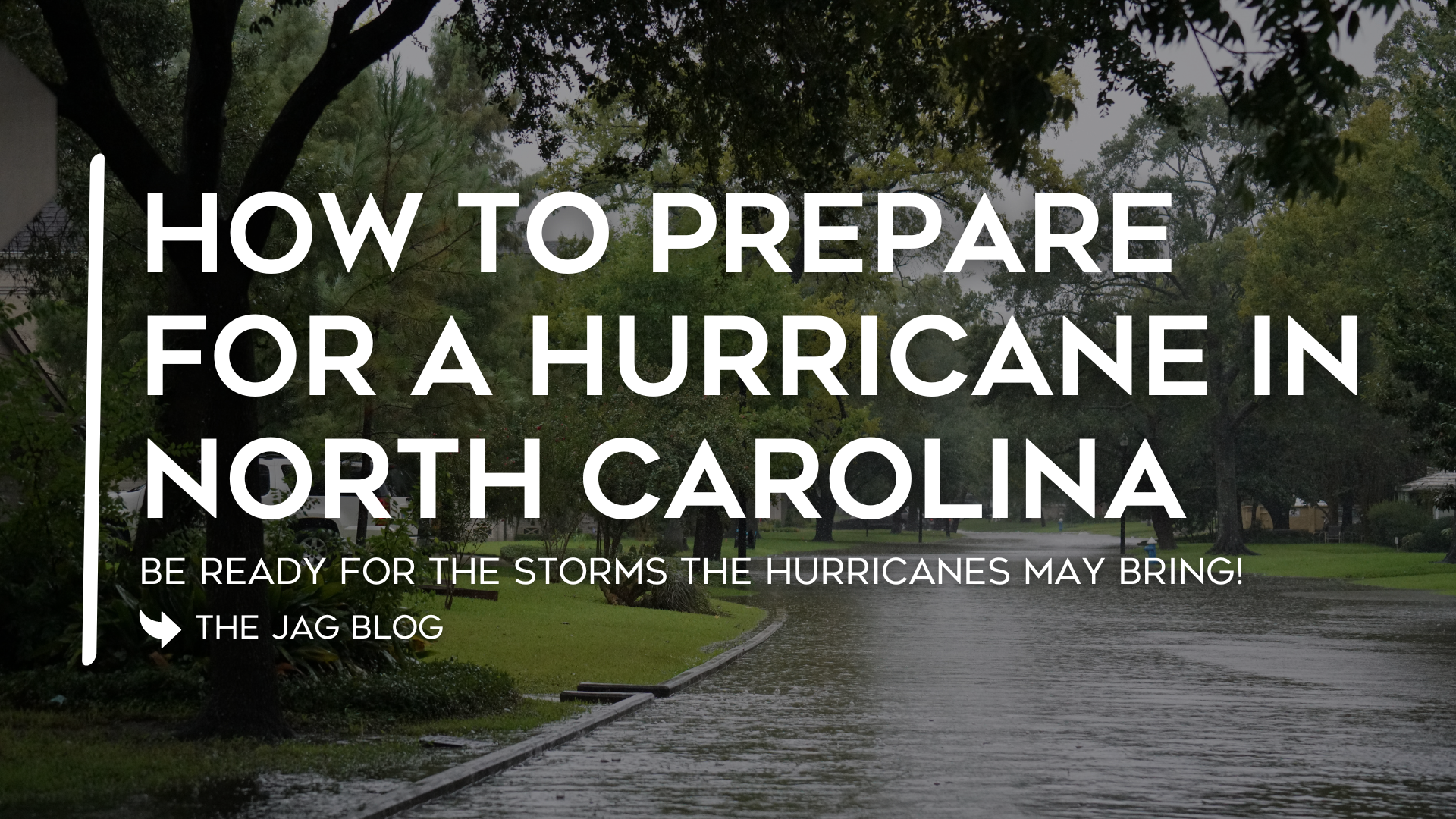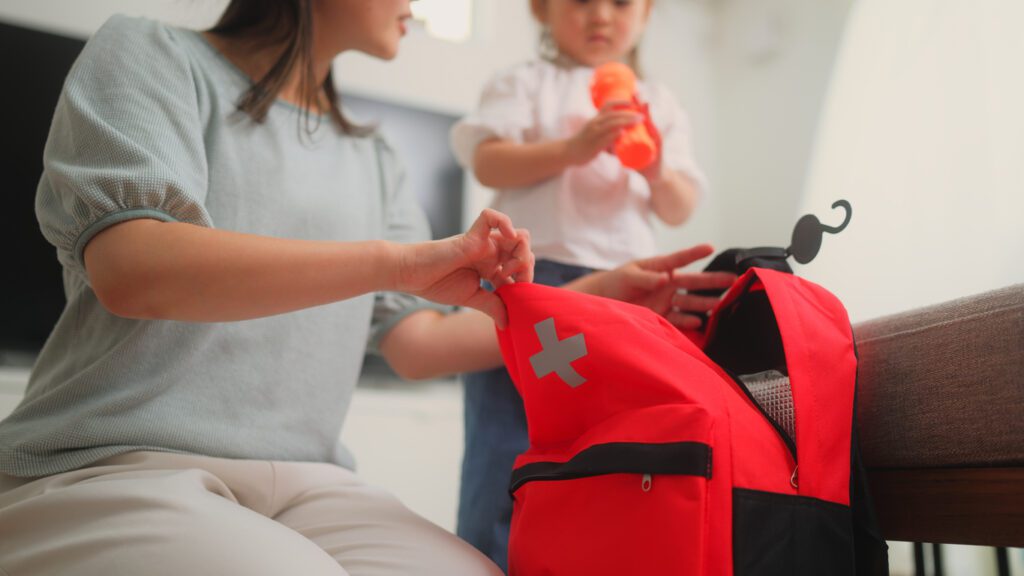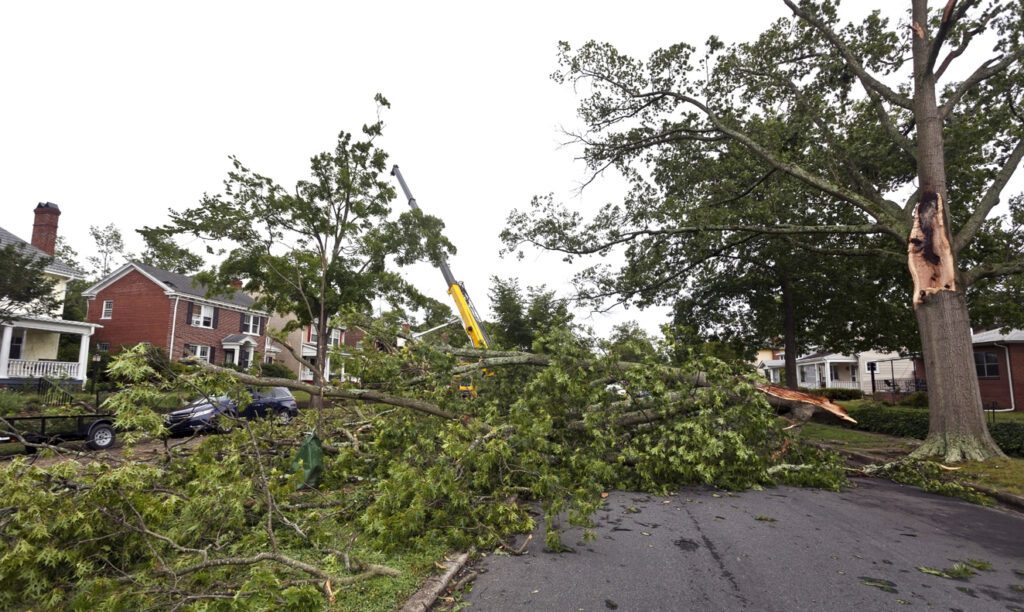How to prepare for a hurricane in North Carolina

Debby has officially moved out of the U.S., but the National Oceanic and Atmospheric Administration (NOAA) is predicting a heavy amount of tropical activity through November 30. While life in the Triangle is surrounded by North Carolina’s natural beauty from the mountains to the coast, its proximity to the coast also means residents have the Atlantic hurricane season to deal with each year. With several more months of hurricane season still on the horizon, it’s a good time to know how to prepare for a hurricane for the next time one heads inland.
Here’s what you need to know about how to be ready for any storms a hurricane may bring to the Triangle.
Stay informed
One of the best ways to stay on top of hurricane season is to keep an eye on weather forecasts through reliable sources. One such source is the NOAA’s National Hurricane Center (NHC). The NHC monitors activity in the Atlantic Ocean. And it issues watches, warnings, and forecasts to save lives and prevent loss of property.
In addition, stay tuned to local news stations, such as WRAL and its hurricane tracker, ABC11, or CBS17. You can also sign up to receive real-time alerts through ReadyNC.gov. This will provide you with updates on storm progress, including any emergency alerts you may need to be aware of. Keep in mind that a Hurricane Watch means hurricane conditions are possible. A Hurricane Warning means that hurricane conditions are expected and that you should start to prepare for a hurricane and what it may bring.
Prepare your home
While the Triangle itself doesn’t experience the same type of storm surge from a hurricane as the coast, the area tends to get hit hard by the tropical storms hurricanes bring with them. In fact, hurricanes tend to bring high winds, flooding, and tornadoes inland, which can cause significant damage. That means you’ll need to spend some time prepping your home for the storms.
Bring in or secure any loose items outside of your home. Outdoor furniture, grills, and even flowerpots could get picked up by high winds. Look for and remove dead or weak branches from trees and bushes that could cause damage to your home. Reinforce your windows and doors with storm doors or shutters. You may even want to consider using plywood to protect your windows if the storms are expected to be particularly heavy. Finally, check your gutters to make sure they are draining properly and to prevent water damage.


Build an emergency kit
Grocery stores tend to get hit hard with people stocking up for the essentials before a storm. This is why you should make sure your emergency kit is always ready. A good kit includes basic supplies like several gallons of water for each person in your home, a three-day supply of non-perishable food for your family and pets, and flashlights with extra batteries. Include a first aid kit that is stocked with essentials. Make sure you have bandages and dressings, medications, antiseptic wipes, antibiotic ointments, and a thermometer.
Include other essentials like phone chargers, important documents in a waterproof container, as well as a bit of cash in case power goes out. Check expiration dates on items in your kit and replace out-of-date contents when necessary. Don’t forget to put a list of important phone numbers in your kit, too. This will fully prepared you for an emergency.
Plan for an evacuation
It’s important to be prepared for an evacuation as flood waters can come from the coast and cause issues in the Triangle area. Plan for evacuation and communicate it with your family for an added level of safety. It’s best to identify multiple routes out of your area and to plan where you will go if evacuation is necessary. Make sure you have a plan for your pets, too. ReadyNC.gov provides information on open emergency shelters should you need it.
Before you need to evacuate, be sure to share your plan with family and friends, in addition to everyone in your home. Pack a go-bag that you can quickly grab that’s filled with clothing, toiletries, and any personal items you might need to have on you as you head out.
Protect your assets
Don’t wait until the last minute to make sure your home is protected. Review your home and property insurance policies to make sure they’re up to date and that hurricane-related damage is covered. Double-check your policy to see if you’ve added flood insurance, too, since standard policies do not cover flooding.
If you have valuables that you are concerned about in case of flooding or storm damage, make sure you document them for insurance purposes. Store these records in a safe, waterproof container or online where you can access them if needed.
Stay safe during the storm
If you aren’t being evacuated, the safest thing you can do during a hurricane is to shelter in place. Find a windowless room on the lowest level of your home. This puts as many walls between you and the storm as possible. Keep a radio in the room to stay updated on the storm.
As the storm is happening, avoid floodwaters and high winds by staying indoors. If floodwater starts to rise, move to the highest level in the building. And do not try to drive through floodwaters. That’s because your car could get stuck or even get swept away in the flooding.


Take action after the storm
When the storm is over, take time to carefully assess any damage that may have happened to your home. Document any damage for insurance claims purposes. Watch carefully for downed power lines, flooding, and structural damage.
And don’t forget to check on your neighbors, particularly those who are elderly or who have special needs. You may even want to get involved with your local Red Cross or other organizations that can help assist in recovery efforts across the Triangle.
Stay safe through 2024
Debby may have passed, but that doesn’t mean North Carolina is safe from other hurricanes this year. To fully prepare for a hurricane, stay informed, secure your home and your family, and always be ready for when the unexpected happens. By following the steps above, you can ensure your safety and minimize the damage that may come when a hurricane hits.


